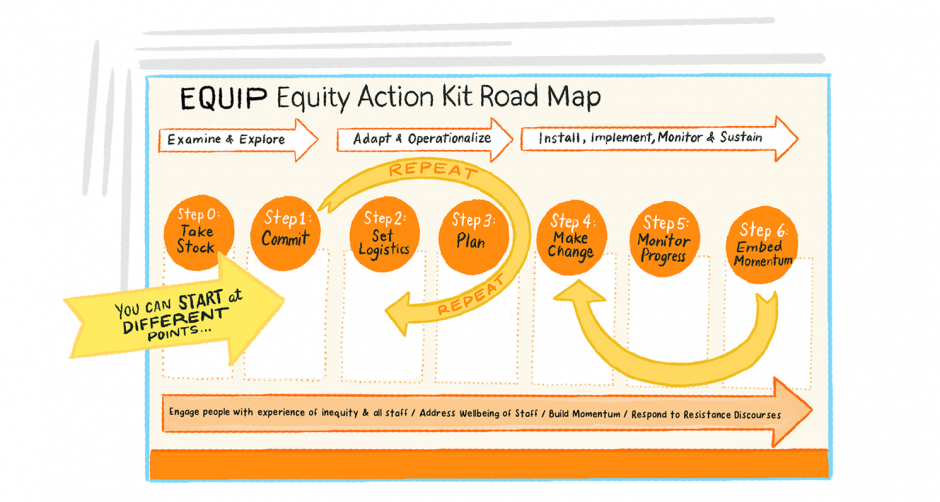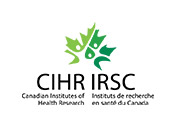EQUIP is a program of research and knowledge mobilization aimed at equipping health and social services for equity. Based on multiple studies over the past couple of decades we have developed diverse tools and resources, and most recently have improved them, added to them and assembled them into the Action Kit presented here.
The EQUIP Equity Action Kit (Action Kit) is designed to help guide organizations in diverse health and social service settings who want to implement equity-oriented care. The guidance is offered in multiple aspects of the change process, including how to tailor action to each unique context, how to integrate with other initiatives, and how to evaluate equity and change.
Equity-oriented care (EOC) is about directing adequate resources to those with the greatest needs. It doesn’t mean treating everyone equally, because everyone doesn’t need the same thing. The aim of the EOC is to recognize and reduce:
- The effects of structural inequities (e.g., poverty, sexism, racism, transphobia) on people’s access to and receipt of care, and access to the social determinants of health
- The impacts of multiple, intersecting forms of racism, discrimination and stigma
- The frequent mismatches between usual approaches to care and the needs of people most affected by health and social inequities
Because we conceptualize equity-oriented care as multi-dimensional, the Action Kit supports multiple entry points: cultural safety (CS) and anti-racism (AR) (including an emphasis on anti-Indigenous racism [AIR]), trauma- and violence-informed care (TVIC), and substance use health (SUH), which includes taking a harm reduction (HR) approach and reducing substance use stigma (SUS).

The Action Kit includes
Land Acknowledgment
We gratefully acknowledge that our work in the province of British Columbia is primarily carried out on the unceded, ancestral, and continually occupied territories of the xʷməθkʷəy̓əm (Musqueam) Nation. The work at Western University was conducted on the traditional territory of the Anishinaabek, Haudenosaunee, Lūnaapéewak and Chonnonton Nations. We extend our respect and gratitude to the Indigenous Peoples on whose land this work takes place and our collaborations extend.
We recognize the intergenerational harms of colonization and their profound impact on persistent health inequities in Canada. We work in solidarity with Indigenous Peoples to support an anti-racist approach to healthcare and social services towards education and action to actively address the intergenerational harms of colonization and promote greater health equity.
Watch the videos, “Why Equity-Oriented Health Care” and “How to Implement Equity-Oriented Health Care”, before starting the Action Kit.








